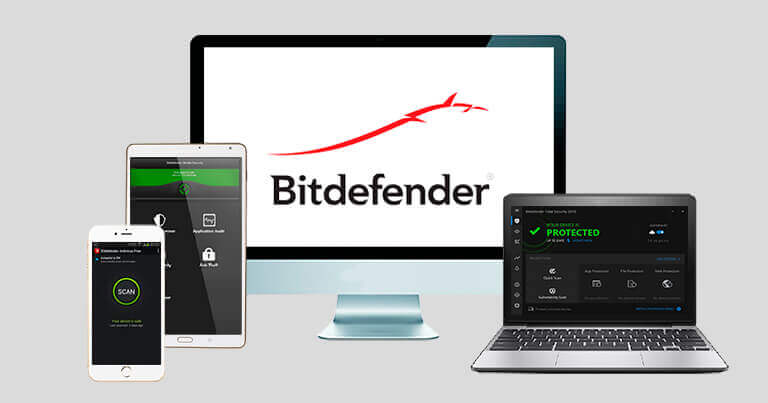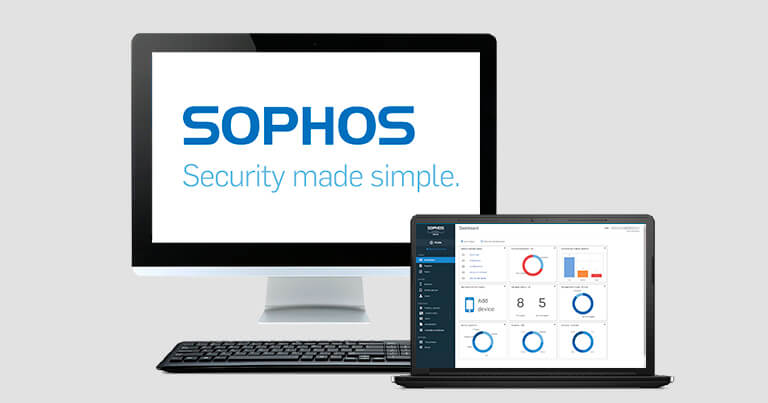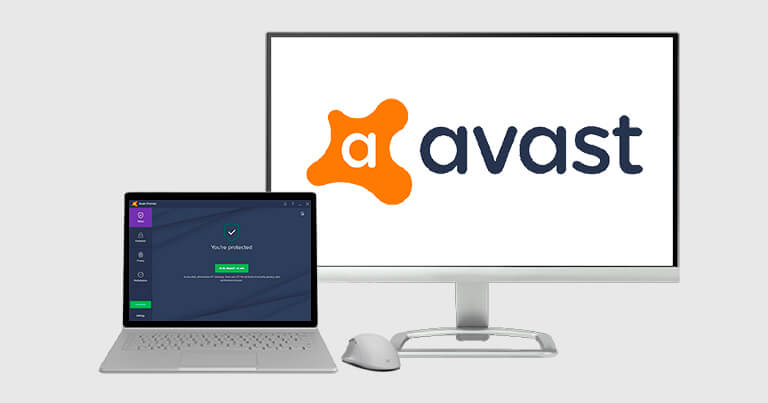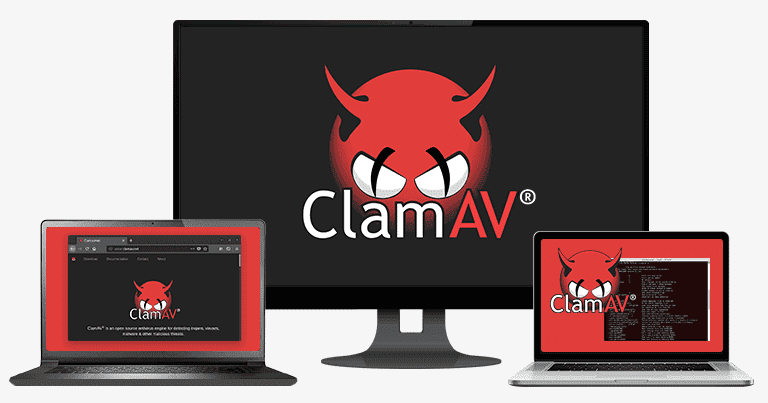
Updated on: December 23, 2024
Short on time? Here’s the best antivirus for Linux in 2025:
- 🥇Bitdefender GravityZone Endpoint Security Tools : Offers excellent malware protection with cross-platform support, sandboxing, a firewall, web protection, and comprehensive distro compatibility.
Linux devices are by no means immune to threats. They’re susceptible to malware, network intrusions, and phishing attacks, just as Windows devices are. That said, Linux is unique, and malware threats are nowhere near as common. Despite this, Linux can still use many of the same antivirus tools as other major operating systems.
The best antivirus programs for Linux users are usually aimed at businesses. Yet, some cybersecurity companies also offer affordable enterprise plans for home users. Not every Linux user will need these, but if you run a server, seedbox, or have an extensive network supporting your home-based business, there’s a need for these products.
I tested dozens of Linux antiviruses to find the ones that work best. Some good free options will do the trick for some users, but if your home network is large or tied to commercial activity, you should consider getting an endpoint security plan. There are a few options that are affordable for home Linux users, but Bitdefender is my favorite.
Quick Summary of the Best Antiviruses for Linux
🥇1. Bitdefender GravityZone — Best Overall Antivirus for Linux in 2025

Bitdefender GravityZone is my favorite Linux antivirus for 2025. It offers a wide range of features to protect home networks. GravityZone’s products work on all major Linux distros and Windows and Mac computers. They offer protection from malware and network intrusions and can cover servers, seedboxes, and more.
GravityZone’s machine learning-based antivirus had a 100% detection rate in my testing, and found malware files designed to run on Linux, Windows, and macOS. In comparison, ClamAV only detected 95% of malware samples in my tests. Bitdefender’s on-access scanner provides comprehensive real-time protection, too.
It’s pretty easy to manage GravityZone’s various features across multiple devices. The admin console is intuitive, and shows which functions you can carry out on each device. Bitdefender also provides insightful summaries of what it’s done to protect your network. You can see how many threats were detected on each device, view incident reports, and more.
I’m impressed by the Live Search tool, too — a feature that makes fetching information (including system statistics and events) from endpoints much easier. It’s not a huge addition, but in my tests, I could find vulnerabilities more quickly using this feature. However, you have to activate the Live Search module in your policy settings before it will work, which some users might find annoying.
Ultimately, GravityZone is meant for businesses using multiple operating systems but can also work well on extensive home networks. The best plan in this case is the Small Business Security package. It can cover between 1 and 100 devices and costs just $199.49 / year for 10 endpoints. All plans cover 1 Linux server, too.
Bottom Line:
Bitdefender GravityZone is a powerful tool for protecting Linux and other devices. Its advanced malware scanner uses machine learning to detect threats in real time, and it scored a 100% malware detection rating during my testing. I appreciate Bitdefender’s cloud-based Control Center feature, which makes it easy to manage firewalls, app sandboxing, web filters, and more for all licensed devices. All Bitdefender plans come with a 30-day money-back guarantee.
Read the full Bitdefender review here >
🥈2. Sophos Intercept X Advanced for Server — Best for Home Linux Users

Sophos Intercept X Advanced for Server provides excellent network protection for Linux users in the home and business environments. It uses a massive proprietary malware database and advanced heuristics to locate and remove all types of malware. Like Bitdefender, the business plans can be helpful for home Linux users running complex operations at home. Unfortunately, the protections for Linux can only cover servers and not individual machines.
That said, the server protection afforded by Sophos is excellent. It can neutralize malware, detect exploits, and more. For additional security, you can use Sophos to ensure your server will operate under a whitelist, allowing only pre-approved programs to run. Like most Sophos’s products, the server protection uses advanced heuristics to detect new threats.
You can get Sophos Intercept X Endpoint for Server on a 30-day free trial. Once this trial ends, you can find a reseller who’ll provide a quote based on your needs. In my testing, the price I was quoted to cover my small home network was super reasonable.
Bottom Line:
Sophos Intercept X Endpoint offers some of the best malware protection for Linux servers. Though it doesn’t offer protection for most endpoints, it’s a great plan for protecting your home server from nasty threats that could compromise your entire network.
Read the full Sophos review here >
🥉3. Avast Business Antivirus for Linux — Excellent Malware Detection and Removal (Good Enterprise Features)

Avast offers great plans for Linux users in the form of its Business Antivirus for Linux plan. If you run a Linux server at home, chances are you could benefit from the plan designed to protect servers and the devices that connect to them.
Effective malware detection and removal is the first thing I look for in any antivirus. Avast doesn’t disappoint in this regard, clearing every threat from my Ubuntu desktop in short order.
Running scans is both easy and enlightening. The results can be viewed as a simple summary or a line-by-line rundown of everything Avast scanned. Manual scans are always available, but Avast is also backed by real-time protection that checks every file written to the server for threats.
Avast can protect from the latest threats thanks to a steady stream of updates. You even have the option to establish a permanent connection to Avast’s cloud. If you do so, you’ll get definition updates the moment they’re pushed. If this seems a bit too much, it’s easy to set things up, so Avast will check for updates at regular intervals.
Avast’s Business Antivirus for Linux plans are a good way to protect Linux devices and enterprise systems. For most home users, the server plan is the best option. It provides full coverage to 1 Linux server for $259.99 / year. You can add more servers and save money if you have more than 5. All plans are backed by a 30-day money-back guarantee.
Bottom Line:
Avast’s Business Antivirus for Linux offers solid protections for Linux users. Whether you manage tech for a small business or operate a small Linux network at home, Avast can protect your server. It offers strong fundamental malware protection on all plans, supports multiple Linux distros, and is constantly updated.
Read the full Avast review here >
4. ClamAV — Best Open-Source Malware Scanner on Linux

ClamAV offers good open-source malware protection for Linux. It’s our choice for the best free antivirus for Linux in 2025, and it’s pretty much the only good free option on the market today.
When I tested ClamAV’s malware scanner, it detected 95% of malware samples on my Debian 8 computer. While this isn’t as good as Bitdefender (which found 100% of samples), ClamAV still consistently detected trojans, worms, rootkits, and more. What’s more, its scans used very little CPU, and were very quick.
ClamAV includes:
- Command-line malware scanner.
- Multi-threaded daemon.
- On-access scanning.
- Mail scanning.
However, ClamAV only provides users with a CLI, and there are quite a few commands you need to enter to fine-tune ClamAV’s mail scanning. I wouldn’t recommend it for beginner users, but advanced users will appreciate the control, customization, and protection it provides.
I like the fact that ClamAV is truly open-source — its malware directory is constantly being updated by users (who can use ClamAV’s built-in malware reporting tool to add to the database), and the open-source Linux community is constantly working to make ClamAV the definitive free antivirus option for home Linux users.
ClamAV isn’t suitable for protecting servers or larger networks. But it’s a good option if you’re looking for an antivirus to protect a single Linux device.
Bottom Line:
ClamAV offers free malware protection, and it’s made by Linux users, for Linux users. If you don’t mind putting some work into learning its commands, it runs silently and is a really good way to keep your Linux machine protected. I’d love to see ClamAV upgrade its malware scanning to be able to detect closer to 100% of malware files, but it’s still an excellent option for home Linux users in 2025.
Read the full ClamAV review here >
Quick Comparison Table
Testing Methodology: Comparison & Ranking Criteria
To rank the best Linux antiviruses, I used our thorough testing methodology. Regardless of their operating system, we all want protection from malware, network intrusions, and other threats. And we don’t want those defenses to come at a high cost in terms of money or performance. That said, Linux users do have some unique considerations. Here’s what I took a look at:
- I tested each product’s malware detection capabilities. I used a large catalog of dangerous files to determine if each antivirus was up to snuff. I tried dozens of options, but only a few made the cut. My tests showed that every item on this list can detect most malware. Some, like Bitdefender, scored a 100% success rate.
- I analyzed the impact the antivirus had on performance. If you use your Linux machine or server for CPU-intensive activities, you need a lightweight scanner that won’t take up too much processing power during scans. Some antivirus programs have a high CPU drain and slow down your system, making all tasks difficult. But every option on this list offers strong protection without using too many resources.
- I reviewed the website of each business plan. Every antivirus on this list is clearly described on its website. I found extensive documentation, clear descriptions of features, and easy channels for contacting support and sales. Basically, it was easy to determine which features each plan brings to the table for Linux users.

- I explored how easy each antivirus was to use. Linux security programs needn’t be overly complex to provide satisfactory security. Some developers never took this note and tend to overdesign things. Luckily I was able to find a few tools that make managing a secure network easy. Bitdefender GravityZone is particularly good when it comes to simplifying the process of managing protection across various endpoints.
- I considered the cost. Even if your home set-up is tied to commercial activity, you’ll want to protect your network without spending too much money. This can be a problem as most Linux antiviruses are geared toward large businesses. Thankfully, I was able to find some options that are affordable. ClamAV is even free, though it doesn’t offer the full-network protections as the others on this list.
Top Brands That Didn’t Make the Cut
- ESET NOD32 for Linux. ESET for Linux is an excellent and easy-to-use antivirus program. However, the product was recently discontinued, so it is no longer being updated and you can no longer download it.
- Panda Antivirus for Linux. While Panda Antivirus for Linux is still available from third-party sites, it’s no longer supported by Panda and won’t offer protection in 2025.
- Comodo for Linux. Although Comodo’s website still advertises support for Linux, this product has actually been discontinued.
Frequently Asked Questions
Do I need an antivirus for Linux?
Yes, you do need an antivirus for Linux. While Linux is more secure than Windows and Mac, the number of malware infections on Linux is increasing in 2025. A good antivirus program for Linux (such as Bitdefender) can keep your Linux computer, servers, and IoT devices protected and even stop malware from spreading onto Windows and Mac machines.
Do most antivirus programs work for Linux?
Unfortunately, the majority of antivirus programs do not provide Linux support. However, there are still some good antiviruses that do provide Linux support, including Bitdefender GravityZone.
The Linux community also provides some pretty good free protection and reliable open-source security tools such as Firejail/Firetools and RKHunter.
What Linux tools are best if you’re not running a network?
While some of the tools on this list (like Bitdefender) can protect single Linux computers, the truth is that plans aimed at businesses aren’t affordable for most home users. If your use of Linux is mostly confined to a single desktop, you’ll probably want to get a free Linux antivirus. ClamAV is my favorite, but other options offer effective protection against malware, network intrusions, and more. This includes RKHunter, Firejail/Firetools, and even Qubes OS.
What Linux-based attacks should I look out for?
Linux users are vulnerable to all kinds of threats, including ransomware, phishing attempts, and cryptojackers. It’s true that malware developers are more focused on creating software to cripple Windows devices, but Linux systems are by no means immune. Cybercriminals know that Linux machines are often used as servers and linked to other devices using operating systems by various means. As a result, many try to use Linux devices to spread malware, even if the Linux system isn’t directly affected.
Additionally, Linux systems often play a huge role in digital infrastructure. So, even though Windows’s share of the consumer market is dwarfed by Linux, Linux devices are still prime targets for hackers looking to disrupt companies and large organizations.
Can Linux be infected by ransomware?
It’s much less common than on Windows and Mac, but Linux-based machines can fall victim to ransomware attacks. This has been happening recently with the emergence of a Linux version of LockBit, which uses an advanced encryption standard to target and encrypt Linux ESXi servers.
Bitdefender GravityZone includes protection for Linux endpoints that can help prevent ransomware attacks.
What is a good antivirus for Linux Ubuntu?
Most Linux-based antivirus programs are compatible with Ubuntu since it’s one of the more well-known and popular Linux distributions. However, I would recommend Bitdefender GravityZone as it includes all of the security features you need to stay protected in 2025, and it has low-cost pricing plans for home users too.
If you don’t want to spend money, you can also check out ClamAV — but free antivirus programs just don’t provide the same level of protection as their premium counterparts.